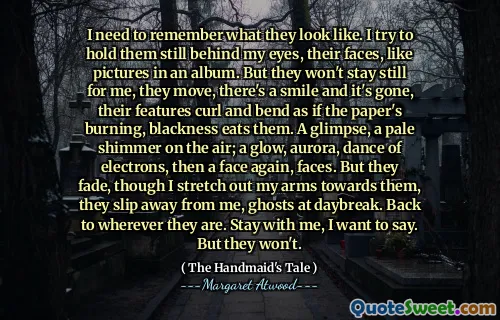As we know from the study of history, no new system can impose itself upon a previous one without incorporating many of the elements to be found in the latter, as witness the pagan elements in medieval Christianity and the evolution of the Russian KGB from the czarist secret service that preceded it
In "The Handmaid's Tale," Margaret Atwood explores the idea that new systems of power often absorb aspects of the old. Historical examples demonstrate that when one regime takes over another, it doesn’t completely erase the existing elements; instead, it adapts and incorporates them. This blending can be seen in various contexts, such as the influence of pagan traditions on medieval Christianity or the transformation of the Russian KGB from the earlier czarist intelligence service.
This concept emphasizes how the past continues to shape present and future ideologies. In the dystopian world of Atwood's novel, elements of the previous societal norms are still present, albeit redefined to serve the new authoritarian regime. Such dynamics highlight the complexity of social evolution and the persistence of historical influences on contemporary structures and beliefs.






